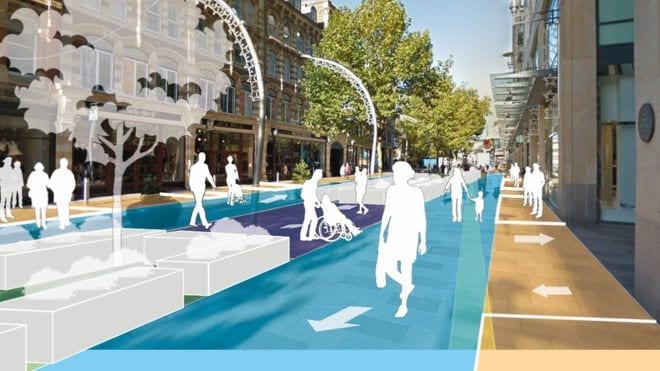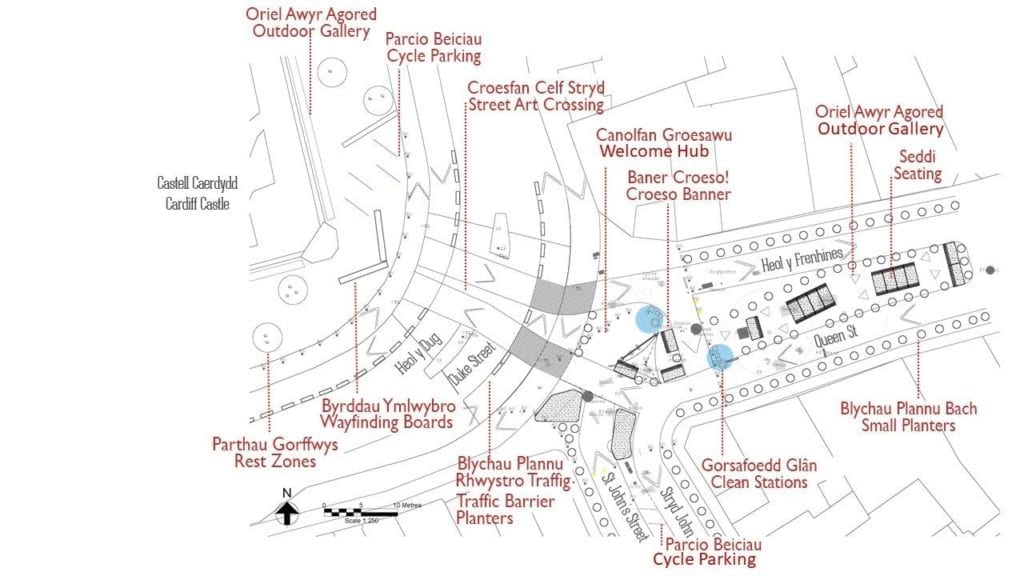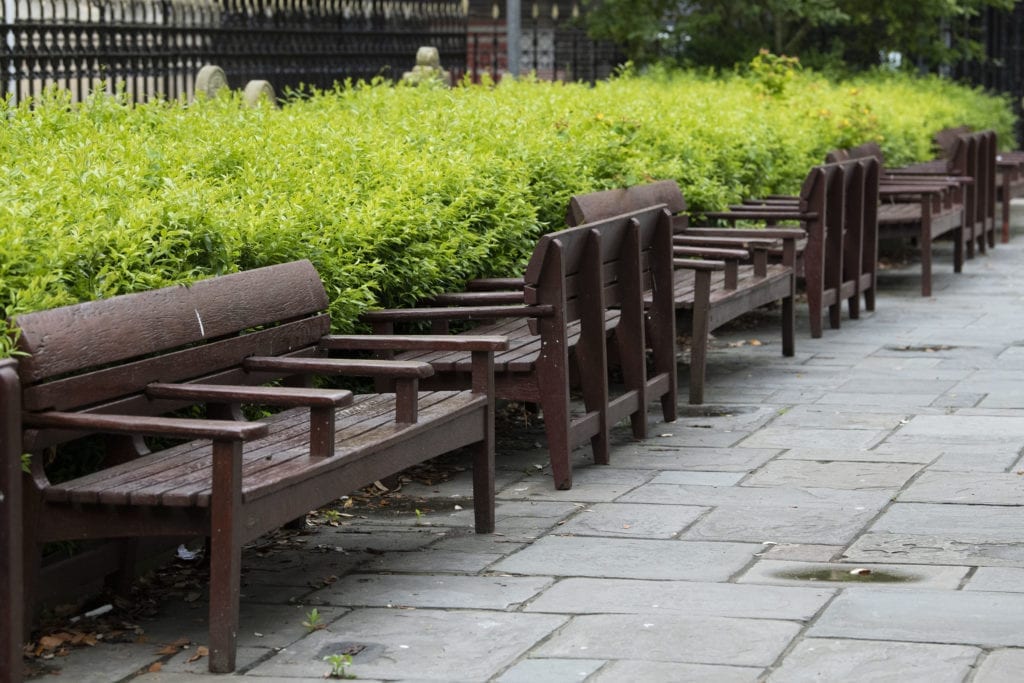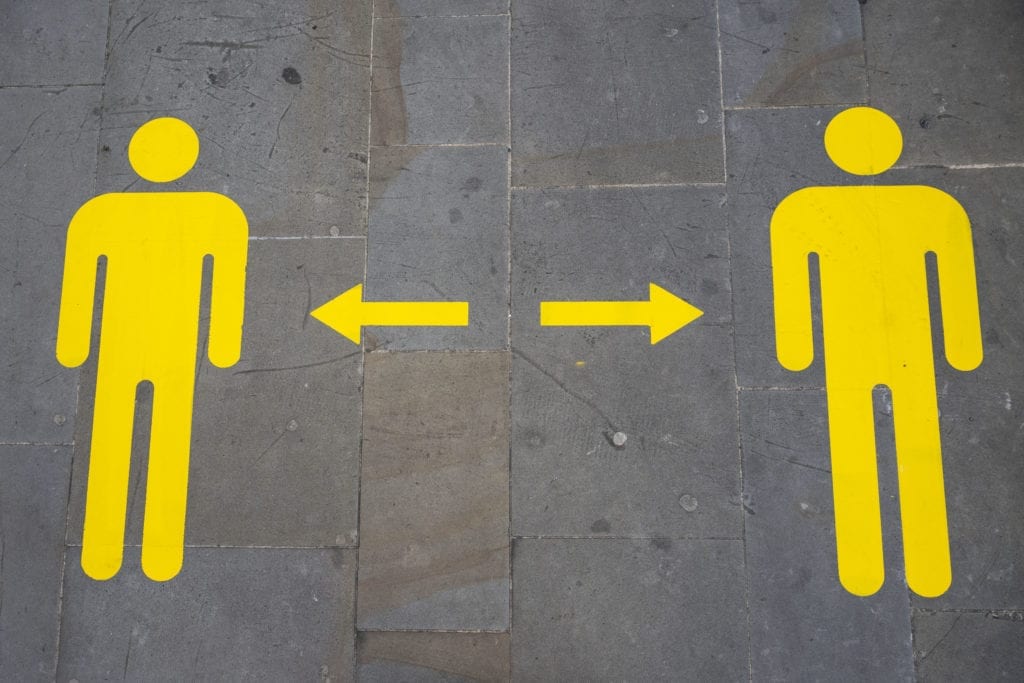Shoppers, workers and residents visiting Cardiff city centre from Monday, June 22, will be greeted by staffed Welcome Points, safe walking systems and some road closures as the city launches stage one of its phased plan to safeguard the public as COVID lockdown restrictions begin to lift.

Welsh Government announced on Friday, June 19, that non-essential shops in the city can open from Monday.

Cardiff Council immediately implemented its plan to keep people safe and help businesses to reopen, including:
- Setting up staffed welcome and information points;
- Creating a clearly signed walking system – accessible to all;
- Establishing queuing areas outside shops;
- Leaving available bench spaces where people can stop to rest;
- Closing Castle Street and Mill Lane to traffic;
- Help and advice for people with disabilities including a motorised, buggy, pick-up service.
The new measures are part one of a number of actions the council will bring in over time as more and more restrictions are lifted.
There are further plans to create a public square inside Cardiff Castle; using Castle Street and the Castle moat as a covered area for local restaurants and cafes to deliver food to; delivering more on-street spill out spaces for hospitality businesses; and setting up zones across the city to entertain people outdoors in socially-distanced settings.

The plans, which were published earlier in the month are designed to make Cardiff one of the ‘safest’ cities in the UK as life begins its return to ‘normal’.
Leader of Cardiff Council, Cllr Huw Thomas, said: “Welsh Government have only just announced that non-essential shops can open on Monday, so we have three days to get Stage One of our plans in place for Monday morning. We’ve tried to make these new systems as simple and easy to use as possible, but I’d urge residents to visit our welcome points where they will get answers to any questions they might have. Initially we are looking at getting the basics in place, but we will quickly move to stage two of our plans which will see some new spaces opened up creatively to help local businesses.
“These plans start to outline how life can resume and how Cardiff can prosper despite COVID-19. We want to restart, recover and renew Wales’ capital and I’m determined our city will reopen in a way that is safe for everyone; in a way that does everything it can to safeguard thousands of jobs; and in a way which is both welcoming and confident about the future of Cardiff.
“We are working through the finer details of the next stages of our plans with businesses, residents, local Councillors and equality stakeholders. I’m confident if we adopt the same ‘one-city’ approach that has seen the public sector, communities and businesses pull together throughout the pandemic, then we can truly make a reality of the common desire to ‘build back better’.
“I’m especially excited about our proposals to open up Cardiff Castle’s grounds as a new ‘public’ square for local residents to use for free. The castle grounds are spectacular. Castle Street and the Castle moat will then be repurposed to provide restaurants and cafes with covered areas to use, giving them a chance to make up for floor space and clients they would otherwise lose because of having to observe social distancing rules in their properties.
“We are also working with a local technology firm who have developed an App that enables people to order food from our pop-up spaces and then have it delivered to enjoy on Castle Street in front of the magnificent backdrop of Cardiff Castle. I’m also keen that we work with the music board to bring live music back to the city as soon as we can. We will look at ways of using public space to create event zones where people can enjoy music and street entertainment in a safe and welcoming environment.”

The plan outlines a series of measures designed to open the city safely and in a way that will encourage people to return to work, to shop, do business and enjoy the wide range of restaurants, cafes and bars the city is home to.
First phase measures from Monday, June 22, include:
Welcome Points – installed at the main pedestrian access points to the city. Welcome Points will offer information to the visitor/shopper/worker on how the city centre works; how to visit in a safe way; how to reach particular destinations; walking plans; hand-washing facilities and staff to assist with any questions. Signage and street ambassadors will also be available throughout the city centre to help visitors and re-enforce the information provided at the welcome points.
Controlled pedestrian movement – Pedestrians (shopper/workers/visitors) within the city centre will be asked to follow signed/marked routes to ensure social distancing is observed. Shoppers will be asked to ‘keep left’ as they walk through the city centre with earmarked spots for crossing over. Pinch points have also been identified where pedestrian movement will need to be restricted to one-way travel, or single file movement to ensure an adequate social distance can be achieved. A series of routes around the city centre is being developed taking account of the retail offer, transport hubs (bus stops, taxi ranks, stations & car parks). A plan is being developed to cover all city centre streets, dependent upon footfall and the availability of safe (socially-distanced) walking space.
Queuing – As each retail unit /shopping centre/arcade will only be able to operate in a safe manner by restricting the number of users at any one time. Shops will be encouraged to manage their queues indoors, but there will be an inevitable impact on the streets outside the shops. Designated queuing areas will be identified and marked on-street.
Help for people with disabilities – Street marshalls will be able to advise and help people who visit the welcome points. There will also be street ambassadors throughout the city centre able to give advice and help. A motorised buggy service can be called from the welcome points or booked in advance by calling 02920 873888 from Monday, June 22.
Street closures and accessing the city centre– An integrated city transport plan will help people access the city centre via car, public transport and active travel (walking or cycling).The transport plan will see the city centre put into ‘event mode’. This will see road closures similar to those put in place for major rugby internationals in the Principality Stadium. An ‘event mode’ closure will allow our limited, city-centre spaces to be used most efficiently, enabling safe, socially-distanced public movement, access to businesses and new spill-out spaces.A managed cordon will be set up around the city centre allowing caraccess, and bus/active travel movement. Castle Street will be closed to enable rest areas to be put in place and to begin the build for the covered, outdoor-seating area designed to help restaurants and cafes open for business when restrictions lift.
City centre road closures to be implemented on Sunday from 12noon
- Castle Street and Mill Lane will be closed in their entirety to private motor vehicles until further notice
- Westgate St, Wood St, Lower St Mary’s St will be used for buses and access only. All residents living on these roads will be able to access their properties. A letter to affected city-centre residents/business will also be delivered on Saturday and on-site staff will be available to assist as required.
- Between Monday and Wednesday next week parking signage for inbound traffic to city centre car parks will be implemented.
Security and Aggressive Begging– All on-street security issues are being discussed/agreed with the police who have offered support to manage pedestrians and any social–distancing issues. A long-term strategy to help the homeless after lockdown is lifted is being developed. 140 people experiencing homelessness have been housed in newly-acquired accommodation since the outbreak began. Of this number 30 had been rough sleeping and the intention is to make sure those people do not return to the streets. The lack of begging opportunities in the city centre has meant clients, who have been left unable to fund harmful addictions, have responded more positively to support services and have begun treatment programmes. Cardiff’s Homeless partnership has been working throughout the pandemic to take this opportunity to help people begin tackling their addictions. The number of people sleeping rough in the city has dropped to single figures since lockdown. Outreach continues to work with the individuals on the street to try to encourage them to take up offers of accommodation and help. Unfortunately, money raised from begging can be enough to allow people to fund their addictions and refuse offers of help. Street marshalls and street ambassadors will be monitoring social distancing. If a member of the public is concerned guidelines are not being observed we ask them to contact one of the marshalls or street ambassadors in the city centre.
Second phase measures include:
Spill-Out Areas– The council recognises that several businesses in the hospitality sector (restaurants/cafes/bars) could be seriously affected by the need to follow social distancing rules. With that in mind, the Council is proposing to open up spill-out areas on the public realm to businesses to use free of charge. It is essential that the key streets, public spaces and new spill-out spaces allow social distancing, are safe, well connected, and present an attractive green and friendly environment appropriate in a capital city. The plan identifies a number of ‘spill-out spaces’ where there can be more managed social activity and safeevents. These include the grounds inside and around the main walls of Cardiff Castle and Castle Street, the northern end of Churchill Way, the Hayes and Mill Lane.
Car Parking– many of the existing city centre car parks will need to operate at a reducedcapacity in order to enable people to leave and return to their cars in a safe manner. A combined (public/private) approach to the availability of city centrecar parking is being developed. To support this a comprehensive network of Park and Stride and Park and Cycle facilities are being developed to manage car access away from the centre, but to allow easy walking and cycling access for the last part of the journey.
Local Neighbourhood Centres
It’s also important to introduce measures to ensure neighbourhood centres can re-open for businesses, while ensuring safe access for the public. In many cases pavements are not wide enough to enable social distancing and queuing outside shops onto pavements could become a cause for concern. We will introduce a range of schemes as soon as it’s practical, including a package of safety and greening measures including pavement widening, cycle routes and 20mph speed limits. Measures which are being piloted at Wellfield Rd in the Roath area will also be rolled out to other neighbourhoods.
Car Access
As lockdown restrictions ease and people return to work, it’s important the transport system is managed in a way that enables social distancing and keeps people safe. Capacity on public transport is likely to be limited for several months and there would be negative impacts in terms of air quality, congestion and emissions if everyone chose to drive instead. Around 29% of households in Cardiff do not have access to a car or van meaning it is essential to provide safe and sustainable alternatives to public transport. This will largely be in the form of improved walking and cycling infrastructure, and residents who can will be encouraged to consider active travel methods for shorter journeys.
Cllr Caro Wild, Cabinet Member for Strategic Planning and Transport said: “It is essential that we do what we can to enable people to continue to cycle and walk as lockdown restrictions ease. There is a chance for us all now to see first-hand how a greener and a safer Cardiff could look. Capacity on public transport will be limited for some time, and we think a lot of people will continue to work from home, which should reduce car numbers into the city. What we don’t want to see is congestion and pollution levels building again. Especially with the measures we will have to introduce widening pavements to ensure social distancing rules can be followed.
“To help we are looking at delivering a ‘pop-up’ cycleway network to encourage people who can, to cycle into the city centre or their neighbourhood centres rather than drive. We will also look at providing additional cycle parking in key locations in the city centre and in our neighbourhood centres. We will review the potential for creating ‘park and pedal’ sites and we will install bus priority measures such as bus gates to maximise the capacity of buses by minimising journey times and ensuring reliability of services.”
Cllr Russell Goodway, Cabinet member for Investment and Development, said: “The main economic fallout from the virus will be felt in Cardiff city centre, which accounts for around a third of the city’s jobs. The city centre hosts a large number of the businesses that are already, and will continue to be, the most impacted by the pandemic, due to their reliance on consumer footfall with around 45,000 jobs. Only a 20% reduction in the economy could see up to 10,000 jobs at risk in these sectors. It is therefore crucially important to get as many businesses back operating safely as quickly as possible. Cardiff needs to win back the confidence of local people, visitors, students and investors.
“It’s clear that urgent action is required to re-open the city centre as a welcoming destination. Our discussions with local employers and business operators have been very positive overall. Everyone knows the city and the economy needs to get moving as soon as it is safe to do so. We want to allow them to use public space for free in a controlled way, and streamline the licensing process to support businesses which could see their customer numbers hugely reduced by social distancing requirements. If we can open up covered public spaces for some businesses it can give them a chance to get up and running again and it can give them a chance to save jobs.”
